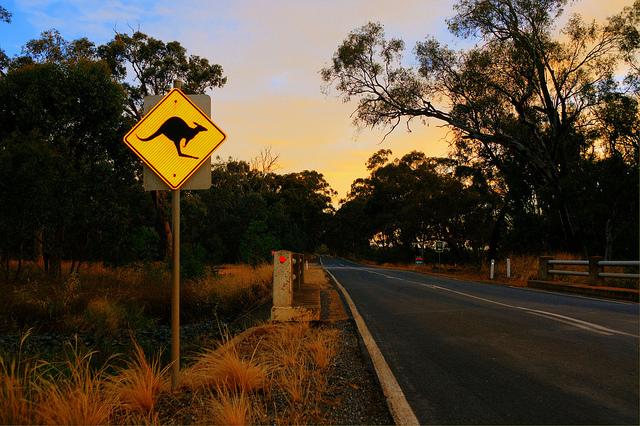Is defending ourselves worthwhile?
In his recent post here on The Strategist, Professor Mark Beeson raises a number of questions which, he believes, we usually overlook in our rush to address more immediate policy debates. His central question—from the title of his post—is whether Australia should go ‘down the Kiwi road’ in relation to defence. But behind that question lie others: whether we should subject defence spending to tests of efficiency and effectiveness similar to those used to judge the merits of civilian spending; whether countries who free-ride on others suffer for it or not; and whether there’s an unstated, patriotic conspiracy of silence—disguised as bipartisanship—in Australia which occludes from political debate the core issues of defence policy.
Let’s take those one at a time. Mark argues that the merits of the Kiwi approach are proven by the fact that New Zealand hasn’t been invaded yet, nor has it been the subject of unacceptable coercion. Instead, it’s been able to devote a greater share of its national expenditure to economic development. All that’s perfectly true. But most defence forces are never used to fight off invaders. Invasion is the final threat to a nation’s security, not the first. In their military role, defence forces are used primarily to signal commitment, to induce caution amongst a potential adversary’s leadership, and to raise the possible costs of adventurism by a hostile power. Those tasks reinforce the notion that an effective, capable military is an order-building mechanism, and not merely a killing machine. On the economic development point, I’m not sure whether low defence spending is a causal driver of fast development—that’s not my area—but I suspect the relationship’s more blurred.
Still, is it a realistic option for Australia to be more like New Zealand in its defence choices? I suspect the principal barrier would be geopolitical. No part of the globe is truly strategically irrelevant, but it’s always possible for a small country in the South Pacific to think itself strategically irrelevant. It’s less easy for a continent to do that. And that’s especially true when we consider where the key strategic balances in the world are to be found—along the Eurasian rimlands. Australia’s not part of those rimlands, but lives close enough to them to feel the security concerns they generate. New Zealand doesn’t—indeed, it lives behind the continental buffer that is Australia.
What of defence spending? Can it be more efficient and effective? Probably. But anyone who’s read Norman Augustine’s book, Augustine’s Laws, knows full well that defence procurement is a fraught business straining the capacities even of superpowers. There are always problems in industries that push at the technological frontier to deliver final products in relatively small numbers. Despite the high total project costs for the submarines and F-35s, I don’t think Australian defence spending is outrageous. Nor is it quite as immune from cuts as Mark thinks: the cuts are just undertaken with greater sleight of hand.
A few words then about free-riding. Does free-riding allow some nations to coast while others struggle? Yes. And the various Western alliances have—over time—all manifested a degree of free-riding by smaller parties upon their larger brethren as opportunities to do so arose. Free-riding is usually justified by a belief that ‘we can’t make a difference’. In reality, the bigger the ally, the more difference it can make. Australia can bring much more to its major ally than New Zealand can. And free-riding—despite its name—has costs. In the short term it leads to isolation from the decision-making processes of one’s allies. Over the longer-term it does little to get a country the world it most wants: it’s a recipe for less effort, not a different effort. Australia should aim to have a strategy whereby it contributes weight in order to get the world it wants.
Finally to the conspiracy of silence. Mark’s perfectly right that the major parties think about defence in similar ways: they’re both attached to the ANZUS alliance (and to the concept of being allied); they’re both strong supporters of a capable, well-equipped ADF; and they’re both willing to fund that defence force at about 1.5-2% of GDP. They disagree on some things—see Rudd’s insistence that he was returning Australian defence to its classic settings after a period of post-9/11 waywardness—but by and large the history of Defence White Papers since 1976 shows the major parties think about the strategic environment, Australia’s role, and defence procurement in largely similar ways.
I’m not sure, though, that such bipartisanship means that more basic questions are deliberately neglected. In large measure it reflects a similar level of bipartisanship amongst the broader community. The level of popular support for ANZUS, for example, has traditionally run at about 70%. In democracies, majorities of about 70% usually get what they want. At the moment they seem pretty happy with the defence effort they’ve got. I don’t think Australia will be heading down the Kiwi road anytime soon.
